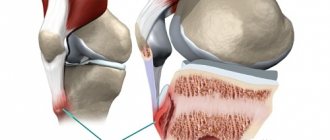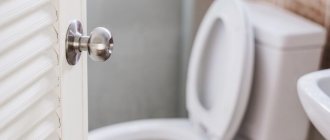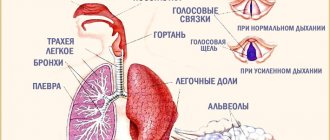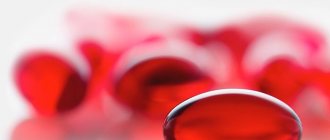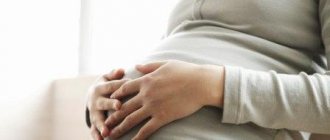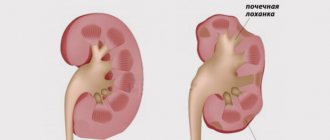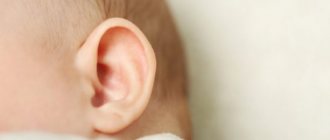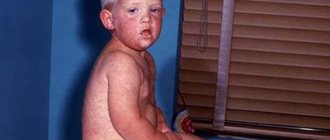Frequent urination in a child is scientifically called pollakiuria and always contributes to the anxiety of mothers and fathers. Why is this happening? How to find out the cause of this condition and correctly prescribe treatment?
The number of urinations per day has a direct correlation with the age aspect:
- from birth to six months, the frequency of urination per day is 15-20;
- from five months to a year - they urinate 9-14;
- up to three years – approximately 10;
- from 3 to seven years – about 8;
- up to 11 years – no more than 8;
- 11 years and more – about 6 times a day.
When the frequency of urination in children exceeds age norms, then this is a case to consult a specialist.
Why does a child have frequent urination?
The need for frequent bladder emptying can be caused by 2 reasons:
- influence of physiological factors;
- the presence of pathological disorders in the body.
If your baby doesn't get a lot of fluids before going to bed, he'll sleep well at night.
In the first case, the release of urine does not cause pain to the child. If his body doesn't get a lot of fluids before going to bed, he sleeps well at night and has a normal temperature. Sometimes frequent urination is a consequence of severe overstimulation. As soon as the provoking factors cease to affect children, the number of visits to the toilet becomes normal.
Often there is a painful, frequent urge to empty the bladder, which turns out to be false.
Repeated daytime urination without pain, false urges and other signs of pathology can occur under the influence of the following factors:
- excess amount of water or other liquids entering the body;
- severe hypothermia;
- emotional stress;
- increased physical activity;
- treatment of the child with diuretics.
Small deviations from normal diuresis parameters associated with physiological processes are acceptable. For example, if yesterday a 7-year-old child urinated 5 times a day, and today – 8-9 times. It is necessary to check whether external factors or diet have changed. Daytime urination also progresses to nighttime urination, when the child drinks a lot of liquid before bed.
- lingonberries;
- cranberries;
- cherries;
- watermelon;
- melon;
- bananas;
- carrot;
- cucumbers;
- tomatoes, etc.
Parents should consult a doctor if frequent urination in a child aged 4 or 5 years is accompanied by alarming symptoms.
If your child's urination is accompanied by alarming symptoms, you should definitely visit a doctor.
Pathological signs in older children, 7 or 8 years old, should be of even greater concern:
- pain in the lower abdomen or lumbar region, pain, false urges, which is a sign of cystitis;
- small portions of urine, typical for colds and neuroses;
- chills, high temperature, sweating, characteristic of kidney disease;
- swelling or bags under the eyes that appear with pyelonephritis;
- severe thirst or frequent urination at night, which occurs with diabetes mellitus and diabetes insipidus;
- a strong odor of urine, cloudiness, and the appearance of traces of blood, which may indicate the presence of tumors.
In some pathologies, urine leakage is not accompanied by pain or stinging. Among them:
- ARVI;
- vegetative-vascular dystonia, neuroses;
- brain injury or tumor;
- small bladder volume, etc.
With a brain injury, urine leakage is not accompanied by pain or stinging.
Causes of frequent urination
The main reasons why young children empty their bladder more often than normal: hypothermia; taking diuretic medications, herbs; a number of psychological reasons (stress, nerves, anxiety, depression, neurological disorders); serious diseases and pathological abnormal changes of the bladder and urinary canals.
Parents should worry if their baby “walks small” more often than usual for 3-5 days. In this case, you need to monitor the smell of urine, its color and shade. If your baby is in pain when going to the toilet, or complains of burning and itching after urinating, you should immediately seek medical help.
To find out the root cause of frequent bowel movements, it is recommended to undergo a series of tests to obtain a complete clinical picture. The cause of the inflammatory process of internal organs may be non-compliance with hygiene rules.
If you don’t change a baby’s diapers for a long time, his genitals become rotten and the inflammatory process begins to activate. Special attention should be paid to the hygiene rules of girls. If you take improper or insufficient care of your body, bacteria from the rectum can spread to the genitals, which will lead to inflammation of the pelvic organs.
Diseases that cause frequent urination
One of the diseases that affects young patients is genitourinary tract infections. In this case, the following is observed: a small volume of urine, frequent false urge to empty, pain and stinging during the passage of urine.
If there are symptoms of infectious diseases that are accompanied by fever, incontinence, pain in the lower abdomen and perineal area, a change in the color of urine, this indicates cystitis, which is in the acute stage. An elevated temperature indicates that the body is fighting an inflammatory process. In this case, it is necessary to undergo a course of treatment with medications, which should only be prescribed by a doctor.
Symptoms of diabetes: the child drinks a large amount of water and constantly asks to go to the toilet, loss of appetite or changes in food preferences. Signs of diabetes mellitus also include weight loss, lethargy and drowsiness. An endocrinologist can help cure the disease.
Overactive bladder is a pathology that occurs in young patients aged 5-6 years. If after this age the frequency of bowel movements does not return to normal, you should consult a pediatrician or neuropsychiatrist.
Signs of enuresis include urination that cannot be controlled. Frequent urination may hide synechia in females, hypoplasia, and other pathological changes.
Prevention measures
Of course, it is impossible to insure a child against diseases of the urinary system. However, a number of preventive measures make it possible to timely identify pathology and prevent the occurrence of unpleasant complications.
- Be extremely attentive to the child’s condition and possible manifestations of the disease.
- Do not neglect scheduled visits to the doctor. Children under six months old should be examined by a pediatrician every month, up to three years old - every three months, after four years old - once every six months.
- Make sure that your child does not catch a cold; forbid him to sit on cold benches or damp ground.
- Pediatricians recommend feeding your baby breast milk for as long as possible. The urine of such children contains large quantities of immunoglobulin A, which protects against various infections.
- Do not try to find out on your own what may be causing frequent urination in children. Treatment and comprehensive examination can only be prescribed by a doctor.
Parents should constantly monitor how often their child goes to the toilet. For any deviations from the norm, you should contact your pediatrician. It is better to consult a doctor once again and protect the child’s body from possible complications.
Age indicators
Undoubtedly, it is worth paying attention to the child’s frequent urination. If the baby drank cranberry juice, ate watermelon or melon, then such a reaction from the body is quite expected. Even if the baby does not complain of any discomfort, you should contact a pediatric urologist.
Pollakiuria, or frequent bladder emptying syndrome in children and adolescents, develops under the influence of many negative factors. In addition to reducing the body's resistance to infections, the cause of the pathological condition is sometimes a stressful situation for it.
This could be a change of educational institution, moving to a new place of residence, parental divorce, or the death of a close relative. The baby’s nervous system cannot cope with such a load, and the body reacts to this with urination disorders.
For the initial diagnosis of a possible disease, the doctor needs to know how many times the child empties the bladder during the day. If the indicators do not exceed the norm, then unless the child complains of pain or burning, further treatment is not carried out. The pediatric urologist focuses on the following values:
- in the first days of life, the baby urinates 5 times during the day;
- the number of urinations in a child under 6 months is 20 times;
- by the age of one year, the baby urinates no more than 15 times;
- from one to 3 years, the norm is 10 urinations per day;
- from 3 to 6 years - no more than 8 times;
- from 6 years and older - 5 times.
Hypothermia is one of the reasons for the frequent urge to empty the bladder
The frequency of bladder emptying changes as the child gets older. This is due to the gradual formation of the organs of the urinary system. Until adolescence, the development of all life systems occurs. For example, human kidneys take several years to form.
These paired organs perform the most important functions:
- maintain an optimal balance of minerals and biological fluids;
- remove metabolic products, toxic compounds, and waste from the bloodstream;
- respond to the accumulation of glucose reserves in the body;
- stabilize blood pressure.
The active growth of the child, excess stress and natural changes in the structural elements of the kidneys affect their functioning. First of all, this is expressed in an increase in the number of urinations.
A slight deviation from the norm should not cause alarm. Parents do not need to constantly count the number of visits their child makes to the toilet and compare the obtained values with yesterday’s indicators. If today a child often sits on the potty, then this is not a reason for concern. Perhaps he and his dad went sledding down a hill for a long time or drank a lot of delicious lemonade with his grandmother in a cafe.
What is physiological pollakiuria?
The causes of frequent urination may be harmless and not related to illness. In this case, physiological pollakiuria is usually meant. Its development is due to the following factors.
- Drinking large amounts of liquid. When a child drinks a lot, the urge to go to the toilet becomes more frequent. Parents should pay attention to the reasons for increased fluid intake. It’s one thing if a child in the family is accustomed to drinking mineral water every day or feels thirsty in hot weather, or after physical activity. If your baby constantly asks for water and pees a lot for no reason, this may indicate a disease such as diabetes.
- Taking medications with a pronounced diuretic effect. These include diuretics, antiemetics and antihistamines.
- Hypothermia. Frequent urination in a child without pain is accompanied by a reflex spasm of the kidney vessels. After warming, pollakiuria stops.
- Eating foods that have a diuretic effect (lingonberries, watermelon, cucumbers, green tea). Most of them contain a large amount of water, so the number of trips to the toilet increases.
- Frequent urination in a 4-year-old child is possible due to stress and overexcitement. Against their background, adrenaline is released in the body, which affects the excitability of the bladder and the excretion of the fluid itself. Therefore, the child often visits the toilet, but urinates in small portions. This is a temporary condition that goes away on its own.
Physiological pollakiuria is completely safe and does not require specific treatment. Urination returns to normal after the provoking factor is eliminated.
Parents are not always able to independently determine the cause of such a disorder. In some cases, frequent urination in a child without pain is a symptom of a serious illness. These may be psychosomatic disorders, pathologies of the endocrine and nervous systems. The disorder is usually accompanied by fever, excessive sweating and refusal to eat. Let's look at the main diseases that cause frequent urination in more detail.
- Your child suddenly begins to urinate every 10 to 30 minutes, and the total frequency of urination per day reaches 30 to 40 micturitions per day.
- Your child produces very little urine per urination.
- The child's urination is painless.
- Your child does not wet his panties or pee in his pants during the day.
- Your child does not drink excessive amounts of liquid.
- Your child was already toilet trained and tidy when the illness began.
- Frequent urination does not bother the child during sleep (an important distinguishing feature)
Symptoms
To determine frequent urination in children, you need to observe them and pay attention to complaints. To identify the disease, if you notice problems in emptying the bladder, consult a doctor.
Cystitis
When increased urination occurs without natural causes of fluid consumption, it is a signal for parents to become concerned.
The penetration of pathogenic infections can disrupt urination, you need to pay attention to:
- Cutting and pain during bowel movements in the genitourinary area.
- Pain in the lower abdomen.
- Increased body temperature.
- Change in urine color, with the appearance of clots of sediment and blood.
With inflammation of the genitourinary organs, there will be uncontrollable reactions of the body when coughing. Children may defecate uncontrollably, and urine leakage will be noticeable in their underwear. In newborns, the manifestation of the disease is constant crying, weight loss and poor appetite.
Acute respiratory viral infection
ARVI is the primary stage of the disease. At this moment, the bronchi are affected, where foci of viral infection are created. With poor treatment, the disease enters the second stage, intoxication of the body occurs with damage to the urinary system. Loss of fluid causes frequent urination.
Colds cause neurogenic bladder dysfunction. This disease is accompanied by damage to areas of the brain responsible for filtering blood and volume of urine. The disorder occurs without pain. If not identified and treated, it can progress to enuresis.
Frequent urination in children
At the age of 4–6 years, children experience frequent urination. The cause of the phenomenon may be the presence of worms in the body, the causative agent being pinworms. To determine the disease, you need to conduct a stool test. After treatment, the disease recedes and the children are cured.
During stressful situations, uncontrolled urination is possible. To determine the cause, the doctor needs to observe the child during the process to make a diagnosis.
Bladder dysfunction
Bladder dysfunction is associated with stressful situations. The disease begins to develop when the centers of nerve endings responsible for the functioning of the bladder are insufficiently developed. Frequent trips to the toilet are a symptom of painless urination due to neurogenic dysfunction.
Frequent urination with neuroses
The disease is observed from 8 to 10 hours. Stressful situations and mental excitability are the main signs of frequent urination. If the process continues for a long time, you need to see a doctor.
Extraneous pressure on the bladder
With a small bladder volume and pressure during pregnancy, premature urination is observed. This disorder is pollakiuria.
There are symptoms when children experience frequent urination. Weakened immunity, increased mental excitability and stressful situations are the reason when diseases appear.
You need to pay attention to the nuances of a person’s behavior and mood in order to take action.
Causes of pollakiuria
Frequent urination sometimes accompanies emotional stress. This means that your child is under psychological pressure. Symptoms are involuntary, not intentional. Frequent urination may begin 1 or 2 days after a stressful event or change in the child's daily routine. You can make the problem worse by worrying too much about your baby. Punishments, reproaches, ridicule also aggravate symptoms.
Although this condition rarely hides an organic pathology, your child should still be examined by a doctor. The only study that is required is a general urine test to rule out cystitis. Need for
x-ray examination
No.
How to help your child
1. Convince your child that he is physically healthy. Tell your child that his body, kidneys, bladder... everything he worries about is fine. Because family members may convey their anxiety to him, and he may be afraid that there is something wrong with his body, that he is in danger. Convince him as many times as you deem necessary - that he is healthy, that soon everything will pass without a trace.
Cystitis. Symptoms, diagnosis, treatment, prevention
Information for patients. What is cystitis? Symptoms, clinics...
2. Explain to your child that if he wants, he can learn to wait longer periods of time between
urination
. Convince him that he most likely will not wet himself, because this is what the child is afraid of. If he does get exhausted, don’t hesitate to talk to him about it, explain that this sometimes happens to children, there’s nothing wrong with it. Tell him that the return to normal frequency of urination will happen gradually. If frequent urination bothers him while shopping or walking, try not to take him far from the house during this period.
3. Help your child relax. Frequency of urination can be an indicator of internal tension. Make sure your child has free time and positive emotions and favorite activities every day. If he has obligatory tasks that he does according to a schedule, relax the discipline, step back a little from the regime. Relaxation exercises may help your child if they are over 8 years old.
4. Happiness and harmony in the home usually helps restore a child's sense of security. Ask the staff of the school or kindergarten that the child attends to ease the child’s discipline as much as possible and in no case limit the frequency or duration of visits to the toilet.
5. Try to find out what is bothering your child. Talk to other family members and think through all the possible stressful moments that could have happened 1 or 2 days before the onset of the disease. Ask school and kindergarten staff about this topic. Discuss your thoughts with your child, try to identify and resolve the stressful situation, but remember that you should not be overzealous in this - your anxiety and excessive fussiness can aggravate the symptoms. Frequent stressful events that trigger this disease:
Acute pyelonephritis in questions and answers
Information for patients. What is pyelonephritis? Symptoms and...
central nervous system
Frequent urination in children without pain is often a physiological sign. But what to do if none of the diseases of the genitourinary system are diagnosed, and there are no physiological explanations for this?
In this case, we can assume that the chain of nerve endings from the center of perception to the organ has broken somewhere, and now the latter is left to its own devices.
It is logical that the baby wants to urinate as soon as the bladder is full, since nothing is stopping him from doing so. Here it will be important to immediately tell the child that he should not constantly endure.
Since the body does not understand this command, “trouble” can happen at any moment. And then it’s up to the doctor and a course of therapy to correct and normalize everything.
Neuroses can also cause the baby to go to the toilet more often. Stress plays a huge role here. In this case, the child will experience aggressiveness, mood swings, and uncontrollable emotions.
If problems in the central nervous system are suspected, consultation with a neurologist is mandatory.
Daytime frequency syndrome in children
At a certain age, a boy (less often a girl) suddenly increases the number of urinations. The child can go to the toilet every 20-25 minutes without feeling pain, burning or stinging. This condition usually develops in children 4-6 years old, when the baby already knows how to control his bladder.
The causes of frequent urination in children are worms, in the vast majority of cases pinworms.
Experienced pediatricians know about this feature of the baby’s body and always write out a referral for stool testing for helminthic infestation. After treatment with anthelmintic drugs, along with parasitic worms, urinary disorders also disappear.
The provoking factor for pollakiuria is a stressful situation. But the pediatric urologist still makes diagnostics to detect an inflammatory focus in one of the parts of the urinary system. The baby will need to urinate, and the doctor will check whether the bladder is completely empty. Treatment of daytime frequent urination syndrome in children is based on eliminating the cause of the pathology. In some cases, it may be enough to visit a child psychologist several times.
Urine analysis will help determine the cause of frequent urination
Treatment
If urination is painless, it is enough to eliminate the physiological factors that caused it, and the unpleasant phenomenon will disappear without treatment. But if the child urinates with pain, complex therapy will be required. Only cystitis and urethritis can be treated on an outpatient basis without complications. For all other diseases, hospitalization is necessary.
Complex therapy uses:
- drug treatment;
- physiotherapeutic procedures;
- traditional medicine.
Frequent urination is treated conservatively with the use of drugs that relax the bladder muscles, antibiotics, and sedatives. Their choice is determined by the etiology (origin) of pathological disorders in the urinary system or kidneys.
Surgical interventions are performed in extreme cases if stones or tumors are detected in children.
Surgical interventions are performed in extreme cases if stones or tumors are detected in children. Urination of an inflammatory nature responds well to physiotherapeutic treatment. Procedures are prescribed when the acute stage of the disease has passed.
Speed up recovery:
- electrophoresis;
- amplipulse;
- diadynamic currents;
- ultrasonic influence;
- laser radiation;
- hyperbaric oxygenation (saturation of the body with oxygen).
Who to contact
If your child is urinating more frequently, you should first go for an initial examination with a pediatrician. He will make a preliminary diagnosis and refer you for consultation to a urologist, nephrologist, neurologist or endocrinologist. After examination and diagnosis, the child will be treated by the doctor whose specialization covers the identified disease.
The pediatrician will make a preliminary diagnosis and refer you for consultation to a urologist, nephrologist, neurologist or endocrinologist.
Drugs
Their purpose depends on what causes frequent urination. The following groups of medications are used:
- anticholinergic drugs (Oxybutynin, Vesicare, Urotol, etc.) - for an overactive bladder;
- antispasmodics (Driptan), m-anticholinergics (Atropine, Ubretide), nootropics (Picamilon) - for a lazy bladder;
- uroseptics (Canephron N), antibiotics (Amoxiclav, Sumamed, Monural) - if urination is caused by inflammatory processes;
- sedatives, nootropics, antidepressants (Pantogam, Picamilon, Melipramin) - for neuroses;
- hormonal drugs (Insulin, Minirin, Prednisolone), cytostatics (Chlorobutin, Leukeran, etc.) - for diabetes, glomerulonephritis, enuresis (urinary incontinence).
An experienced physician may prescribe anticholinergic medications for your child. For example, Vesicare.
Folk remedies
Popular recipes to help normalize urination:
- Pour 1 tsp with a glass of boiling water. birch buds, leave for 2-3 hours. Give your child half a glass 3 times a day before meals.
- Grind thin cherry stems, brew and drink as tea. Alternate with dried corn silk.
- Take 4-5 tbsp. l. dry crushed mint, pour 1.5 liters of boiling water, boil for 8-10 minutes. Drink a glass of decoction before meals 3 times a day.
If the child's frequent urination is short-term, painless and not accompanied by any health problems, treatment is not required. In this case, parents only need to carefully monitor the baby and, if necessary, eliminate factors that contribute to changes in the number of urges to defecate.
Frequent urination with pain and other symptoms of pathological processes in the body are a reason for mandatory consultation with a doctor and subsequent treatment. The treatment regimen will depend on what caused the disorder.
Frequent urination with pain and other symptoms of pathological processes in the body are a reason for mandatory consultation with a doctor and subsequent treatment.
Who to contact?
Before treating pollakiuria in a child, it is necessary to visit a pediatrician who will conduct an initial examination, prescribe a series of tests and recommend consultation with specialists. Additional examination is performed by pediatric specialists: urologist, nephrologist, neurologist, endocrinologist, gynecologist.
Drugs
To treat pathological frequent urination in children, the doctor prescribes medications, taking into account the source of the disorder:
- for inflammatory diseases of the urinary system - uroseptics, antibiotics, NSAIDs, antispasmodics;
- for neurotic conditions - sedatives;
- for diabetes mellitus - Insulin injections;
- for vulvovaginitis - antimicrobial, hormonal, antifungal medications of general and local action;
- for balanoposthitis - anti-inflammatory, antibacterial and antiseptic ointments;
- for glomerulonephritis - hormonal drugs, cytostatics;
- for a neurogenic bladder - nootropic drugs, m-anticholinergics.
To treat pathological frequent urination in children, the doctor prescribes medications, taking into account the source of the disorder.
Folk remedies
To eliminate inflammatory processes, normalize urination and strengthen the immune system, the following folk recipes are used:
- 1 tbsp. l. Brew mint in 250 ml of boiling water, leave for 1-2 hours, strain. Give the child 0.5-1 tbsp. l. 2-3 times a day. This drink is good for cystitis and type 2 diabetes.
- Wash 2 cups of fresh cranberries, squeeze with your hands or mash with a masher, strain the juice, set it aside. Pour the cake into 1 liter of water, bring to a boil over moderate heat, then combine with the juice obtained earlier and add 1-2 tbsp. l. honey The child should take 100-200 ml of fruit drink 1-2 times a day after meals. The product is indicated for use in cases of cystitis, urethritis, and pyelonephritis.
- For inflammatory diseases of the external genitalia, sitz baths are performed with herbal decoctions - calendula, chamomile, sage. To prepare the solution, you need to combine 90 g of plant material and 1 liter of hot water, place the mixture in a water bath for 10-15 minutes, then filter, cool slightly and pour into a basin. The child needs to be undressed from the waist down and placed in a container filled with liquid for 10 minutes, after making sure that the temperature of the broth has become comfortable.
Alternative medicine is an effective complement to drug therapy.
The exact dosage and duration of use of any folk medicine is calculated individually, depending on the age and health of the child. Before starting to take medications, you should consult your pediatrician.
Alternative medicine is an effective addition to drug therapy, but cannot be used as the only means of eliminating dysuric disorder in children.
What to do if your child starts writing frequently? Should we be alarmed or can we wait? First of all, you need to ask your doctor these questions to rule out urinary tract infections and any pathology.
Frequent urination in babies, accompanied by painful symptoms, requires immediate treatment. But first of all, the doctor analyzes the factors that could cause this. If this is a central nervous system disorder, sedatives are prescribed. If there is a tumor, surgery is required.
When inflammatory processes occur, uroseptics are prescribed, and in extreme cases, antibiotics. Frequent urination in adolescents often requires hormonal therapy and the prescription of cytotoxic drugs.
Based on the examination results, the doctor can determine what is causing frequent urination in children and the causes of the pathological disorder. After this, the pediatrician prescribes appropriate treatment.
For physiological pollakiuria, specific therapy is not used. All other causes require treatment in a hospital setting, where it is possible to fully diagnose diseases and monitor the child’s condition around the clock.
The course of therapy is prescribed in accordance with the diagnosis, since pathological pollakiuria cannot be overcome without affecting the underlying disease. The selection of specific drugs remains up to the doctor. The range of remedies used for frequent urination in children is very wide. For example, for neuroses, sedatives are prescribed; for the treatment of diabetes mellitus, insulin is required. In case of dysfunction of the central nervous system, surgical intervention may be required.
Parents should understand that pollakiuria is a fairly serious disorder that can be caused by dangerous diseases. If a child's fever and frequent urination persist for several hours, it is necessary to call a team of medical professionals. Self-treatment of this pathology is not recommended.
